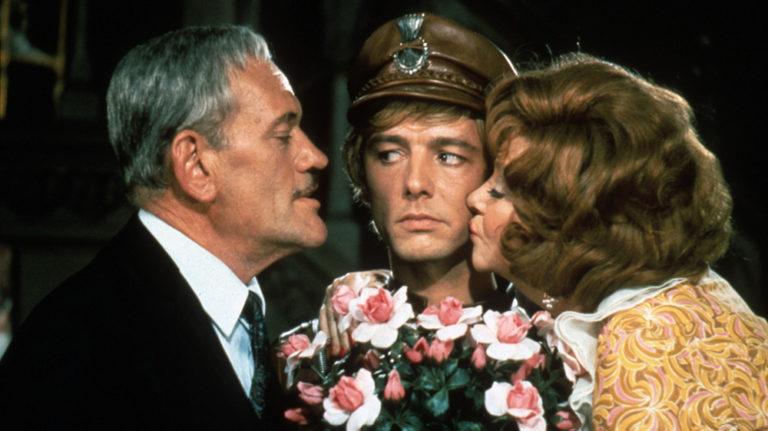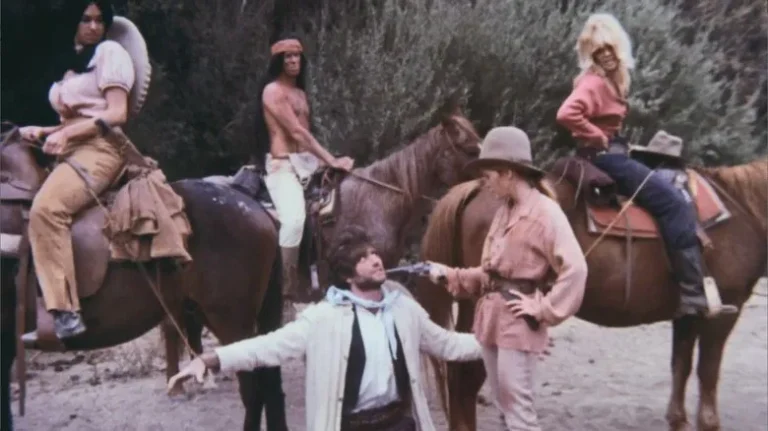Directed by Richard Fleischer
Written by Norman Wexler
Starring:
- James Mason as Warren Maxwell
- Susan George as Blanche Maxwell
- Perry King as Hammond Maxwell
- Richard Ward as Agamemnon
- Brenda Sykes as Ellen
- Ken Norton as Mede
- Lillian Hayman as Lucrezia Borgia
Rating: ![]()
There are films whose infamy precedes them, and Mandingo is one such cinematic blasphemy—reviled upon its debut in 1975, and still cloaked in controversy despite the passage of decades. Though some contemporary voices have dared to excavate its worth, hailing it as an unjustly maligned portrait of American sin, it remains a pariah in the canon. It is not merely its subject—slavery—that renders it so incendiary, but the manner of its portrayal: at once lurid and lyrical, sordid and strangely solemn. No easy verdict can be passed on a film that forces us to peer into the abyss of a national wound still festering beneath our cultural skin. Emerging at a time when the American conscience was restless—amid post-Watergate disillusionment and sexual revolution—Mandingo captured the decadence of the hour with a grotesque majesty. It is both grand and vulgar, an exploitation Southern Gothic melodrama etched in blood and sweat.
To call Mandingo a racist film is, paradoxically, to misread its cruelty. Its white characters are not subtly flawed but monstrous—gluttonous, incestuous, tyrannical. Their evil is not allegorical but explicit, painted in thick strokes across a canvas of pain. Norman Wexler’s screenplay, based on Kyle Onstott’s disreputable pulp novel, clings faithfully to its lurid source, with only minor tonal recalibrations. The result is a film that wallows in filth, yes—but with a strange, mournful insistence on confronting the depravities of the antebellum South head-on. Fleischer, no stranger to dark material, orchestrates the chaos not with precision but with an eye for the dramatic grotesque. There is no catharsis here, only the slow suffocation of horror.
Warren Maxwell (James Mason), an aging patriarch clinging to his power, presides over his plantation like a decaying god. His son Hammond (Perry King) is both inheritor and participant in the rituals of cruelty that define their world. The enslaved Mandingo fighter, Mede (Ken Norton), is less a man than a symbol—fetishized, brutalized, ultimately sacrificed. The narrative spirals through incest, rape, forced breeding, and combat, each turn more depraved than the last. The marriage between Hammond and his hysterical cousin Blanche (Susan George) is a farce of lineage and lust, while Hammond’s dalliance with an enslaved woman offers a flicker of sentiment drowned by the enormity of the surrounding violence. Mason’s weary decadence and King’s icy detachment set the tone for a world without pity.
No hero emerges, nor does the film offer any consoling truths. Ken Norton, a boxer by trade, portrays Mede with tragic restraint. His silence speaks volumes—a stoic mask barely containing centuries of sorrow. In the film’s most heinous episode, Mede is pitted in mortal combat against another enslaved man for the amusement of white onlookers. The fight unfolds like a fever dream, a ritual slaughter enacted before a ghoulish congregation. The sequence is a moral exorcism, damning both participants and spectators to a realm where humanity has fled, leaving behind only appetite and agony.
And yet, for all its exploitative trappings—its heaving flesh, its crimson fountains—Mandingo is redeemed, or at least transfigured, by its aesthetics. Its visual composition is somber and grandiose, a sepulchral beauty pervading even the most vulgar tableaux. The plantation house becomes a mausoleum, its corridors echoing with the ghosts of the abused. Each frame is infused with a dreadful elegance that haunts the senses long after the final reel. No, this is not the truth of slavery—but it may be one of its truest nightmares. Mandingo offers an unrelenting, visceral experience that confronts the legacy of slavery without palliative illusion. That it can be read as both a sleazy exploitation flick and an unflinching historical allegory is precisely what makes it so singular—and so necessary to confront.









